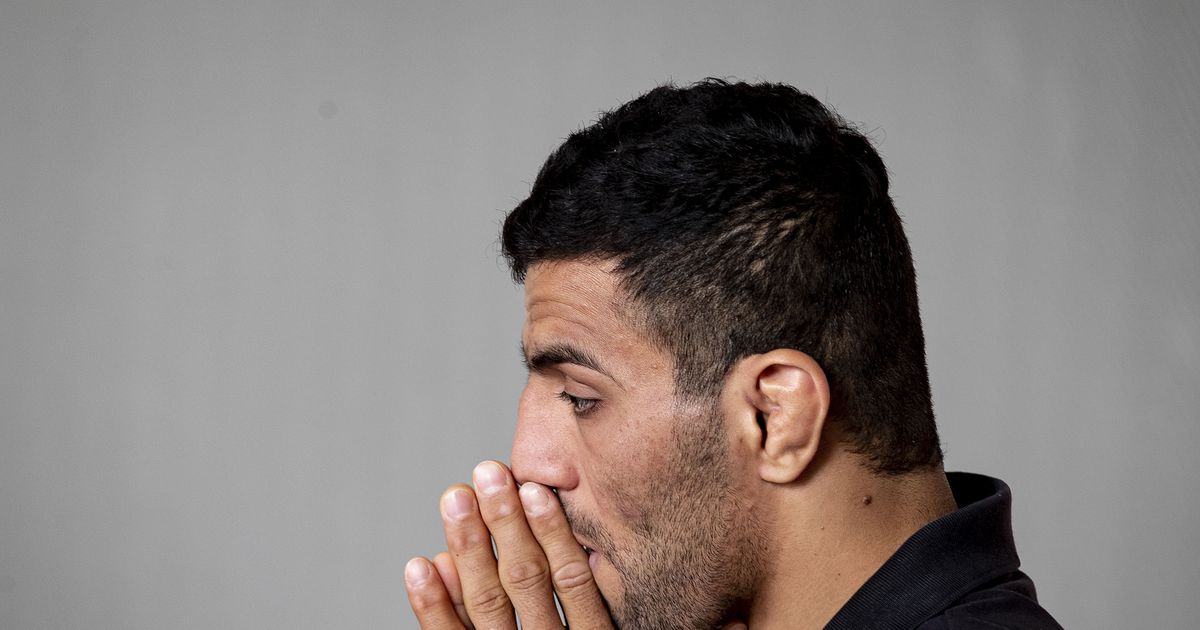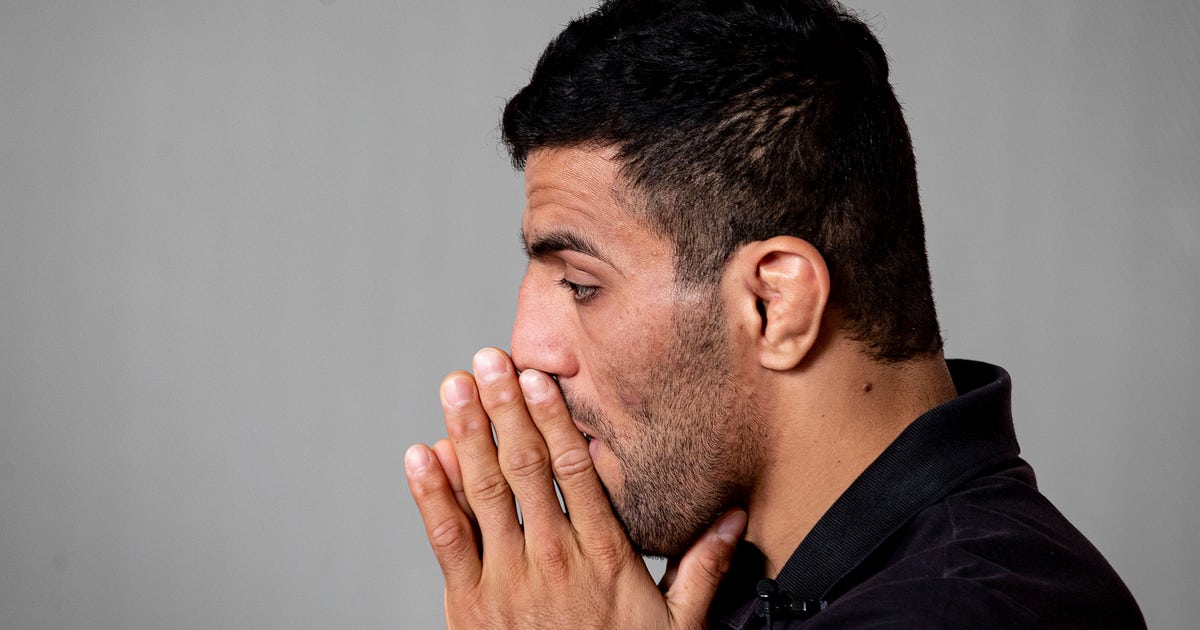Judo champion who defied Iran’s rules now in hiding


DUESSELDORF, Germany (AP) — Saeid Mollaei has been in hiding since he left the Iranian judo team last month, saying he had been ordered to withdraw from the world championships on political grounds.
Now he’s training for next year’s Olympics without a guarantee he can compete.
Mollaei was the defending world champion, and Israel’s Sagi Muki his biggest rival for the gold medal. There was one problem — Iran has a policy of boycotting all competitions against Israelis, even if that means an athlete’s training was all for nothing.
Mollaei told The Associated Press he was ordered to lose a preliminary bout against a Russian in order to cover up the reason for his withdrawal. When he refused and won, he received more intimidating calls from senior officials.
“For once, I decided to live as a free man for myself, and prove to the world that I am a brave man,” Mollaei said in a recent interview in Germany, where he’s living in an undisclosed location.
“I did this for my human soul. For myself. I wanted to practice and compete with freedom, with peace of mind,” said Mollaei, speaking in Persian. “I didn’t want to worry about whom to compete with and whom not to compete with. I’ll compete with anyone, to honor the Olympic charter.”
In the end, Mollaei lost a bronze-medal bout and didn’t face Muki, who won gold. The International Judo Federation, which is supporting Mollaei, said he received demands to withdraw from an Iranian deputy sports minister, embassy staff and the head of the Iranian Olympic Committee.
Mollaei’s likeliest route to the 2020 Tokyo Olympics is now the International Olympic Committee’s team for refugees. The IJF is helping him but said he will need refugee status from the United Nations.
So far, adapting to life in Germany is hard.
“Even the clothes you can see on me (are gifts). I had nothing when arrived in Germany. I just decided to come and I came,” he said. “I had a lot of gifts from friends and this is how I live now, with the help of a few friends and the IJF. I’m still waiting to see what will happen later, how I can compete, but obviously from the very beginning of my arrival here in Germany I started my training. Where and how I will compete later, I don’t know yet.”
Mollaei said he has not asked for asylum in Germany. Instead, he is living on a visa issued when he competed in German club events, and is cautious about security.
Powerfully built, with broad shoulders, Mollaei speaks softly and chooses his words carefully.
“Even when I want to contact my family I do it through a friend in Tehran because my family is under surveillance and I can’t talk about many issues,” he said. “I don’t have much contact with any of my friends.”
Mollaei told the AP he had been given similar orders to avoid Israeli competitors on three previous occasions. The last time was in February, when he failed to appear for the medal ceremony at a competition in France because it would mean sharing the podium with Muki.
“Almost all Iranian athletes have received such orders when it is linked to Israeli athletes,” he said.
Iranian officials have said Mollaei was somehow manipulated into leaving the team, and that he would be welcomed if he returned home.
He is skeptical, pointing to an Iranian letter to the IJF in May pledging to comply with Olympic non-discrimination rules. At the time, it was hailed as a signal Iran would end its sports boycott of Israel.
“I can assure you that they didn’t comply with the Olympic Charter. So how can we trust them?” Mollaei said of Iran’s sports officials.
Mollaei’s break with the Iranian authorities comes at a time when activists are using sports to defy government demands.
Female Iranian activists have campaigned for years to be allowed to attend sports stadiums, particularly for men’s soccer games, and staged protests at last year’s World Cup in Russia. Last week, Iranian news outlets reported 29-year-old soccer fan Sahar Khodayari had died after setting herself on fire upon learning she could spend six months in prison for trying to sneak into a game.
Mollaei expressed sympathy for Khodayari and other female campaigners.
“I wondered why this happened, why Iranian women can’t freely live like other girls, and enjoy sports and enjoy watching sports,” he said. “I don’t know what’s going on, and why such difficulties should only happen to Iranians and the Iranian sport community.
“I don’t know what to say. I’m just sad and disappointed. I just hope that one day the girls and athletes in my country can live freely and can enjoy life.”







